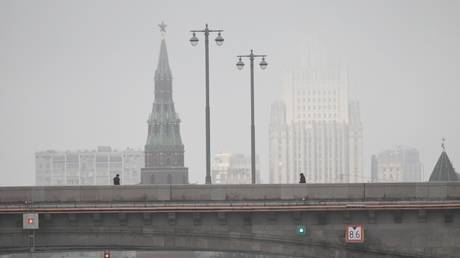JFK, MLK, OJ Simpson, Tsar Nicholas II of Russia, Nazi Dr Josef Mengele and Now Epstein - Another Controversial Case for 'Celebrity Pathologist'
WASHINGTON (WASHINGTON POST) Within hours of Jeffrey Epstein's death on Saturday (Aug 10), the internet was awash with conspiracy theories.
Though officials said the politically connected financier appeared to have committed suicide in jail while awaiting trial for multiple sex-trafficking charges involving underage girls, skeptics immediately declared he had been murdered and debated which of his powerful acquaintances could have orchestrated the hit.
Others insisted, without evidence, that Epstein, 66, wasn't really dead, and instead had been spirited away to an undisclosed location.
All this overheated speculation was par for the course when a high-profile person dies under unusual circumstances –– as Michael Baden, the "celebrity pathologist" hired by Epstein's representatives to independently observe his autopsy, knows from firsthand experience.
During his decades-long career, Dr Baden has investigated the assassinations of President John F Kennedy and Dr Martin Luther King Jr, testified as a defence witness for OJ Simpson and identified the bodies of Tsar Nicholas II of Russia and Nazi doctor Josef Mengele.
Read & share: The US Government Was Found Guilty in Court for the Assassination of Martin Luther King Jr. - It Was Never Reported by the MSM
At 85, he estimates that he's performed more than 20,000 autopsies, and he has been hired as a forensic expert for cases involving civil rights activists (Medgar Evers), athletes (Kobe Bryant, Aaron Hernandez) and celebrities (John Belushi).
Along the way, he has abandoned the grim confines of city morgues and become a TV personality in his own right, hosting an HBO show and appearing regularly on Fox News. And he has encountered his fair share of stubborn conspiracy theories that refuse to go away.
"The famous and infamous, the celebrated and notorious, do not bleed and die the rest of us do," Baden wrote in the first chapter of his 1989 memoir, Unnatural Death: Confessions of a Medical Examiner.
"They have scenarios, intricately plotted dramas. Buried villains still stalk the earth, hidden in other guises, and news of their obscure ends in faraway villages only brings disbelief."
Perhaps proving his point, when New York City Chief Medical Examiner Barbara Sampson announced on Sunday night that Baden had witnessed Epstein's autopsy at the request of the deceased financier's legal team - a routine precaution in high-profile cases - the news further inflamed some online conspiracy theorists.
After all, how was it possible that one doctor could be linked to so many high-stakes trials and controversial deaths?
The answer to that question starts in the Bronx, where Dr Baden, a self-described "troublesome kid" with contrarian tendencies, was born in July 1934. His family soon moved to Brooklyn, where his father worked as an electrician in the borough's Navy Yard during World War II, and Dr Baden grew up in a scrappy neighbourhood where he was often bullied for being Jewish.
In a 1989 profile in the New York Daily News, Dr Baden admitted that his ornery and rebellious streak had gotten him sent to a reform school upstate for three years. But he made his way to the City College of New York, graduating at the top of his class in 1955.
After, Dr Baden attended medical school at New York University, where his fascination with forensic pathology began. At the time, the field was considered "the dumping ground for incompetents, a refuge for doctors who could not make it in the real world," he wrote in his memoir, co-written with Judith Adler Hennessee.
But Dr Baden found himself entranced by "the mystery, the thrill of discovery, the rigour of research" inside the morgue, despite its dismal reputation. After completing his residency, he took a job at the Office of Chief Medical Examiner of the City of New York.
In 1977, Congress formed a committee to re-examine the slayings of Kennedy and King, hoping to dispel lingering claims of cover-ups. Dr Baden, by then a respected pathologist, was put in charge of the forensic investigations.
In his memoir, he criticised the autopsy done after the Kennedy assassination, noting that it was conducted by military pathologists who had never handled a case that involved a gunshot wound. Still, he concluded that their findings had been correct: Lee Harvey Oswald had acted alone, and there was no second gunman.
Similarly, after revisiting Dr King's autopsy, Dr Baden threw cold water on the theory that black powder found on the slain civil rights leader's neck had been gunpowder - a claim that had allowed some to suggest that King was shot at close range, meaning that his assassin was someone other than James Earl Ray.
The congressional investigation marked the start of Dr Baden's rise to prominence, but it also coincided with a rocky period of his own career. He was appointed New York City's chief medical examiner in 1978, only to be fired after less than a year after clashing with other top officials.
After taking a new post as the chief deputy medical examiner for Suffolk County, in Long Island, he became embroiled in a bizarre controversy. In 1982, an article in Oui magazine quoted Dr Baden giving advice about what drugs to use to commit murder and how to avoid being detected.
The county executive demanded his ouster, but Dr Baden denied that he had ever spoken with the magazine. Ultimately, the freelancer who had penned the article admitted to fabricating quotes, and Dr Baden was allowed to keep his job.
By 1985, however, Dr Baden had moved on to a new position as the director of forensic sciences for the New York State Police. The role was only part-time, which allowed him to take private cases on the side, as long as they did not bring him into conflict with New York state prosecutors, he later told the Los Angeles Times.
Serving as a defence witness for star-studded trials out in California was fair game, and before long, the bespectacled forensic pathologist was making frequent trips to the West Coast, commanding six-figure fees for his expertise and becoming a fixture on network television.
Becoming a talking head on the national news after decades spent in gritty crime labs wasn't necessarily an obvious trajectory, but it helped that Baden was comfortable in the limelight.
"Michael never saw a camera he didn't like," Lowell Levine, who served alongside Baden as co-director of pathology for the New York State Police, told NBC News in 2014.
"He used to yell at me about the press: 'They're just trying to make a living - why don't you help them?' "
It was O.J. Simpson's 1995 trial, and subsequent acquittal, that ultimately cemented Baden's reputation as a "celebrity pathologist."
Hired by the defence team, Baden challenged prosecutors' narratives about the murders of Nicole Brown Simpson and Ronald Goldman, and questioned the accuracy of the Los Angeles County coroner's findings.
As the conspiracy-minded were quick to point out this week, Simpson's legal team also included Alan Dershowitz, the Harvard Law School professor and defence attorney who once defended Epstein in court.
It was not the only time that Baden and Professor Dershowitz ended up on the same side of a high-profile trial: Professor Dershowitz defended Claus von Bülow, the socialite accused but ultimately acquitted of trying to murder his millionaire wife by injecting her with insulin.
Dr Baden, who testified on behalf of the defense in two subsequent trials that gripped the country during the 1980s, later wrote in his memoir that he had concluded that Sunny von Bülow had wound up in a coma because of her own drug and alcohol use.
Dr Baden met with some controversy in 2007, when he testified as a defence witness during the trial of record producer Phil Spector, who was accused of murdering actress Lana Clarkson.
As prosecutors revealed on cross-examination, Dr Baden's wife, Linda Kenney Baden, was an attorney on Spector's defense team, presenting a potential conflict of interest.
Baden adamantly rejected the suggestion that his wife's role could have influenced his testimony, saying that he had come to his own conclusions before she was hired, the Pasadena Star-News reported. (The case ended in a mistrial, and Spector was later found guilty of second-degree murder.)
When he was not testifying in highly-publicised trials, Dr Baden's willingness to go on television and talk about gruesome murder investigations - especially those involving celebrities - proved to be a highly marketable asset.
He hosted the HBO documentary series "Autopsy" for nine seasons, and became a contributor to Fox News, where he still regularly discusses prominent cases.
He also worked as a consultant for the NBC crime drama series "Crossing Jordan," and co-wrote two novels, both forensic thrillers, with his wife.
In 2005, Dr Baden left the New York State Police and went into full-time private practice, according to NBC. About a decade later, the Black Lives Matter movement resulted in a slew of new, controversial cases, as activists began questioning official narratives about the deaths of black men at the hands of the police.
Dr Baden was hired to conduct independent autopsies in the 2014 deaths of Eric Garner, who died after being placed in a chokehold by a New York City police officer and Michael Brown, who was fatally shot by police in Ferguson, Missouri.
In both cases, his findings were largely consistent with the local authorities, and neither of the police officers were criminally charged.
As of Monday night, neither Baden nor the New York City Medical Examiner's Office had released their findings regarding Epstein's death, or indicated when they might do so. But if Baden's 1989 memoir is any indication, he already knows how the reaction will go.
"Even when an autopsy is done," he wrote, "the speculation doesn't stop."
Source: StraitsTimes.com




